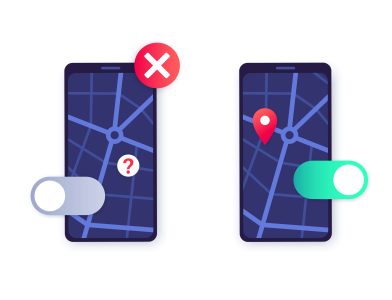How Do GPS Trackers Work?
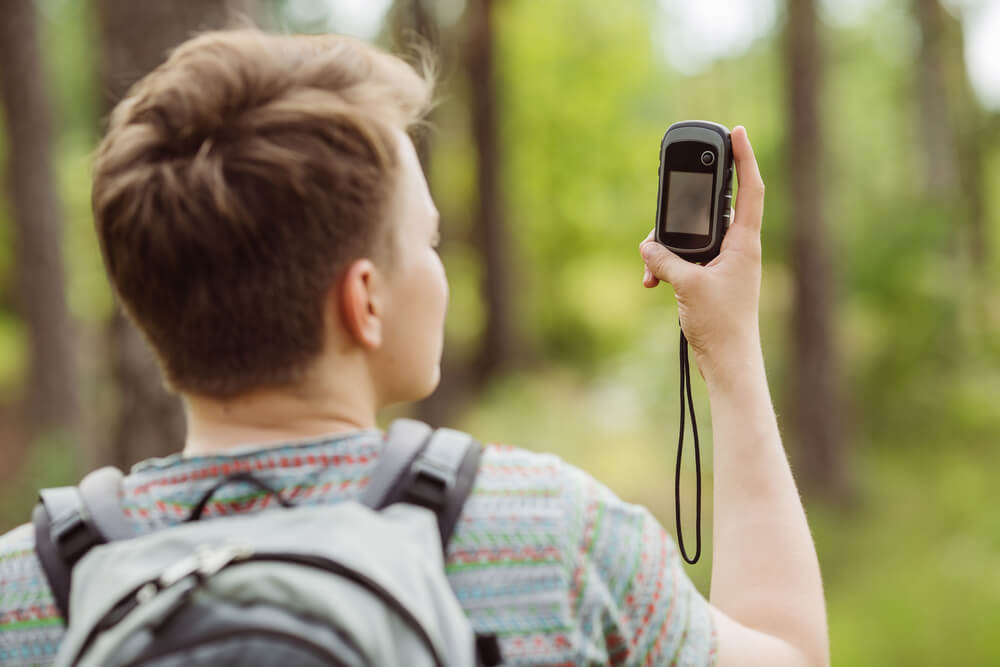
Personal tracking devices have become increasingly popular over recent years, but how do GPS trackers work, and are they safe?
In short, GPS stands for Global Positioning System, and it tracks the location of the user. GPS trackers can follow the location of the person in possession of the device, while another user can see their location.
Those wondering what a GPS tracker is and how it can help keep kids safe should keep reading to learn more.
Contents:
- What is a GPS Tracking System?
- How Does a GPS Tracker Work?
- How are GPS Trackers Used?
- Potential Limitations and Risks of GPS Tracking Technology
- Types of GPS Trackers and Their Advantages
- FAQs
What is a GPS Tracking System?
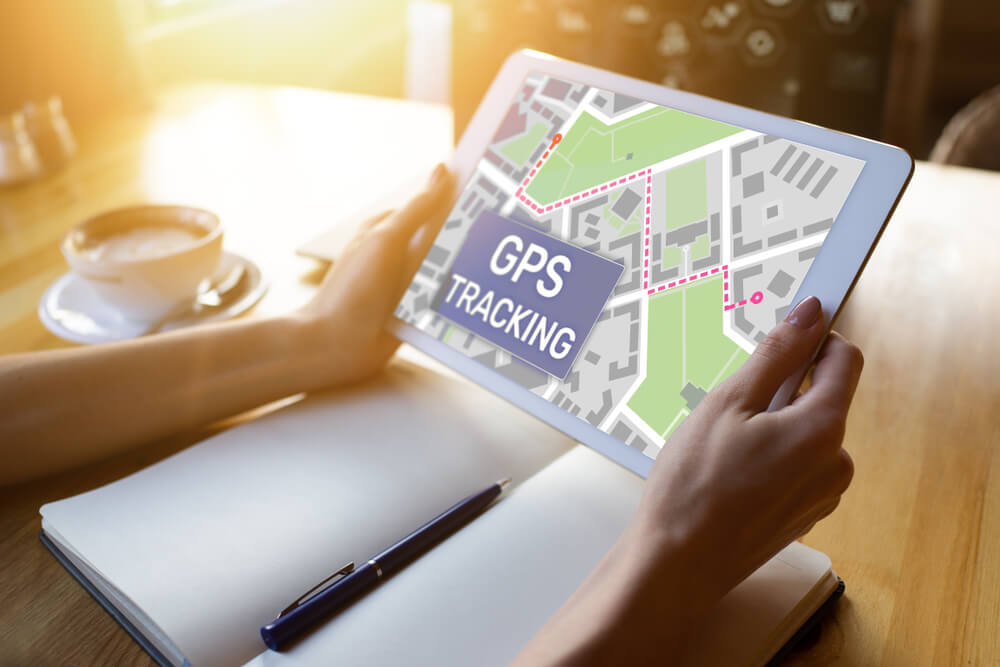
Wright Studio/Shutterstock.com
GPS devices communicate with GPS satellites to showcase the tracker’s location. GPS receivers can be used anywhere on Earth and, with the right software, can show their location to a smartphone, another tracker, or a navigation system.
The Fundamentals of GPS Technology
GPS tracking works by connecting to satellites to send their location through a process known as trilateration. Trilateration uses at least three satellites to pinpoint the location of the tracking devices by measuring their elevation, latitude, and longitude.
The global navigation satellite system operates 24/7, ensuring that GPS trackers can provide real-time location information at any time.
Modern GPS systems often use multi-band GNSS (Global Navigation Satellite Systems), such as GPS, GLONASS, Galileo, and BeiDou, to improve accuracy and reliability. These systems can achieve accuracy within a few feet under optimal conditions.
Depending on the type of GPS tracker, these devices can keep a log of locations or send locations only when requested. An active GPS tracker will allow a user to see the tracker’s location in real-time. Passive trackers take the data and keep it for the user to look at later.
Introduction to A-GPS: Definition & Importance
A-GPS stands for assisted GPS, and it’s a newer version of GPS software. A-GPS uses the satellites of standard GPS and combines that information with cell phone towers and/or Wi-Fi networks. Using these sources simultaneously allows for a more accurate GPS location to be shared.
A-GPS is important because it makes it easier to communicate between tracking systems and satellites when they don’t have a direct path between them. Satellites work hard to give accurate location information, but cell phone towers and Wi-Fi networks help where the satellites fall short.
It’s important to note that A-GPS can still function with satellite signals alone, but its accuracy and speed may be reduced without access to cell towers or Wi-Fi. All in all, though, this can allow for better location information in more areas of the United States.
How Does a GPS Tracker Work?
everything possible/Shutterstock.com
The tracking unit in a GPS tracker is a sophisticated piece of technology. It houses GPS receivers that each can capture signals from at least four satellites. By analyzing the time it takes for these signals to reach the device, along with their precise coordinates in space, the tracking unit calculates its exact location on Earth. This data is then sent to the user’s device or a central server, allowing you to monitor and track the device’s movements in real time.
Real-time location trackers send their location information to a smartphone through an app or a website. When the information is sent can vary based on the type of GPS locator being used. The most common times a tracker sends locations include:
- Times set by the user, such as every hour
- When a user requests the information through the app or dashboard
- When the person with the tracker sends their location
- When the tracker crosses a geofence
In contrast, Bluetooth trackers don’t need to connect with satellites and are better suited for finding lost items within a close range. While both GPS and Bluetooth trackers serve tracking purposes, understanding how they work and their respective capabilities can help you choose the right one for your needs.
Bluetooth trackers rely on proximity to a paired device or a network of devices (e.g., Tile or Apple’s Find My network) rather than satellites. This makes them ideal for short-range tracking but unsuitable for long-distance location tracking.
Defining a Geofence
A geofence is a virtual fence that can be set through GPS tracker software. The user can create a boundary on the map in the tracker’s app. Then, the GPS tracker will send a notification to the user’s mobile phone if the tracker goes past the geofence’s location. While it’s not a fence in the literal sense, it can give parents peace of mind knowing their kid is within the allotted location.
How are GPS Trackers Used?
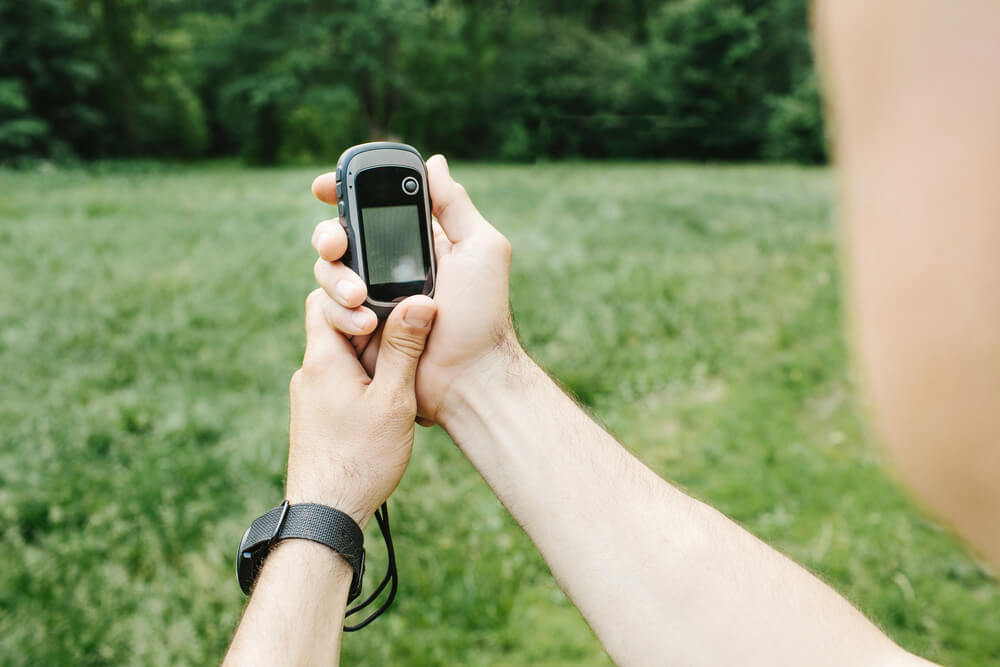
PRESSLAB/Shutterstock.com
GPS monitoring devices are devices that can be used in a variety of ways. Companies and individuals alike can tailor their use to meet specific needs.
Let’s look at three of the most common GPS tracker uses.
- Personal Tracking: Individuals can use GPS trackers to keep an eye on their personal belongings or even family members. A GPS tracker like the Findmykids app can provide a parent peace of mind that their child made it to school safely. Dog owners can check in and ensure their dog is in their yard while no one’s home to watch them. Trackers can even be put in backpacks, purses, or keys so the user can locate their lost items.
- Fleet Management: Companies often find personal GPS units useful for keeping an eye on their fleet. These trackers can provide simple fleet management by sending real-time locations of the company’s vehicles. With more advanced trackers, users can get information about routes taken to create more efficient routes for their employees. These changes can save money and time, offsetting the cost of installing the trackers.
- Asset Tracking: Theft prevention is another common use of trackers. Trackers can be placed on boats parked on the lake or lawnmowers to cut the neighborhood’s grass. Ensuring valuables are where they are meant to be can allow any user extra peace of mind when loaning out equipment or docking their boat after a long weekend.
Potential Limitations and Risks of GPS Tracking Technology
MicrostockStudio/Shutterstock.com
GPS trackers are a wonderful use of technology, but as with anything, there are some potential downsides to keep in mind.
1. Possibility of Undetected Tracking
Since GPS devices are often small and easy to place in bags or cars, it’s entirely possible that someone can track another person without them knowing. This is enough of a concern that some GPS tracker manufacturers have created alerts if an unknown tracker is nearby. If someone is concerned they are being followed, checking for unrecognized trackers would be a good starting point.
2. Potential Inaccuracies in Satellite Navigation
GPS trackers try to give accurate information, but their largest risk is giving inaccurate locations. Most often, the issue is due to one of these common problems:
- The tracker has only GPS, not A-GPS
- It isn’t near cell phone towers or WiFi signals
- The tracking device is surrounded by tall buildings or heavily wooded areas
- The app is experiencing mapping errors
- The tracker is inside a building or even underground
Modern GPS systems using multi-band GNSS can mitigate some of these issues, providing better accuracy even in challenging environments. It’s also important to note that even the most accurate and modern devices can be off by as much as sixteen feet.
3. Concerns Over Location Data Access
As with many other items used online, GPS navigation systems and location devices can be hacked. If this happens, an unauthorized user can see the tracker’s location information, which can lead to a host of safety concerns.
Modern GPS trackers use advanced encryption and security protocols to reduce the risk of hacking. As you’re shopping for options, look for two-factor authentication, always use strong passwords, and avoid accessing tracker apps on public Wi-Fi networks to improve your overall security.
4. Subscription Costs Associated with Some Trackers
While some trackers only require the initial purchase cost to get the best experience, users will often have to pay monthly fees. Depending on the tracker chosen, monthly subscription rates can be as high as $40 monthly. Users should shop and compare prices and features to pick the best tracker.
Many trackers also offer lower-cost plans or free basic services, so users should compare features and pricing to find the best option.
5. School Policies Regarding Tracking Devices
Many GPS-enabled devices are easy to hide in backpacks. Using this form of tracker is acceptable at most schools. However, some parents may choose a smartwatch for their child as an active tracker, which may have games downloaded on it. These additions may cause distractions.
Some schools have even begun restricting smartwatches and other GPS-enabled devices due to privacy concerns or potential distractions.
It’s best to check the school’s handbook or talk to an administrator before sending a child to school with any kind of location tracking device, to be safe.
Types of GPS Trackers and Their Advantages
GPS trackers have revolutionized the way we keep track of people, vehicles, and valuable items. They come in various forms, each tailored to specific needs and situations.
Personal Trackers

MORTAZZA/Shutterstock.com
These are compact devices that individuals can carry or wear discreetly.
Advantages:
- Child Safety: Personal units can be discreetly worn or carried by children, ensuring their safety. Parents can monitor their location in real time, set up safe zones, and receive alerts when their child leaves or enters specified areas. It’s a great way to ensure your child’s safety when they’re away from home.
- Elderly Care: These trackers are valuable for elderly individuals with dementia or Alzheimer’s disease. Caregivers can track their loved ones’ movements and be alerted if they wander away from home, providing peace of mind and security for both the elderly and their families.
- Fitness and Outdoor Activities: Personal trackers are popular among fitness enthusiasts and outdoor adventurers. They provide accurate data on distance traveled, speed, and route mapping for activities like running, hiking, or cycling, helping users stay on top of their fitness goals.
Thinking about accurate and constantly active GPS tracking products for kids is also important. Among the best solutions available, there’s Findmykids—a comprehensive and user-friendly smartphone app designed with both parents and children in mind.
Findmykids: Peace of Mind for Parents, Fun for Kids
Imagine a world where you can keep a watchful eye on your child’s whereabouts while giving them newfound independence and freedom to explore the world. Findmykids makes this a reality.
Here’s why Findmykids stands out:
- Real-Time Location Sharing: Findmykids provides real-time location data, allowing you to track your child’s movements with precision. This feature ensures you’re always aware of their safety and well-being.
- Geofencing Alerts: Set up geofences—virtual boundaries on a map—and receive instant alerts when your child enters or leaves these areas. It’s an excellent tool for monitoring their school commute or visits to friends.
- Sound Around Feature: You can listen to what’s happening around your child when needed, for example, if they don’t answer the phone.
- SOS Button: In emergencies, children can easily trigger the SOS button in the app. It sends an immediate distress signal to parents, providing quick response capabilities.
- Safe Messenger: Findmykids includes a safe and secure messenger function, allowing family members to stay connected while ensuring your child’s conversations are protected.
- Compatibility: Findmykids works on a variety of devices, including smartphones, tablets, and even smartwatches, ensuring you can stay connected regardless of your preferred platform.
Ready to give Findmykids a try? Download the app today, and experience the peace of mind that comes with knowing your child is safe and secure, while they enjoy newfound independence and adventures. Keep your family connected and protected with Findmykids.
Vehicle GPS Trackers
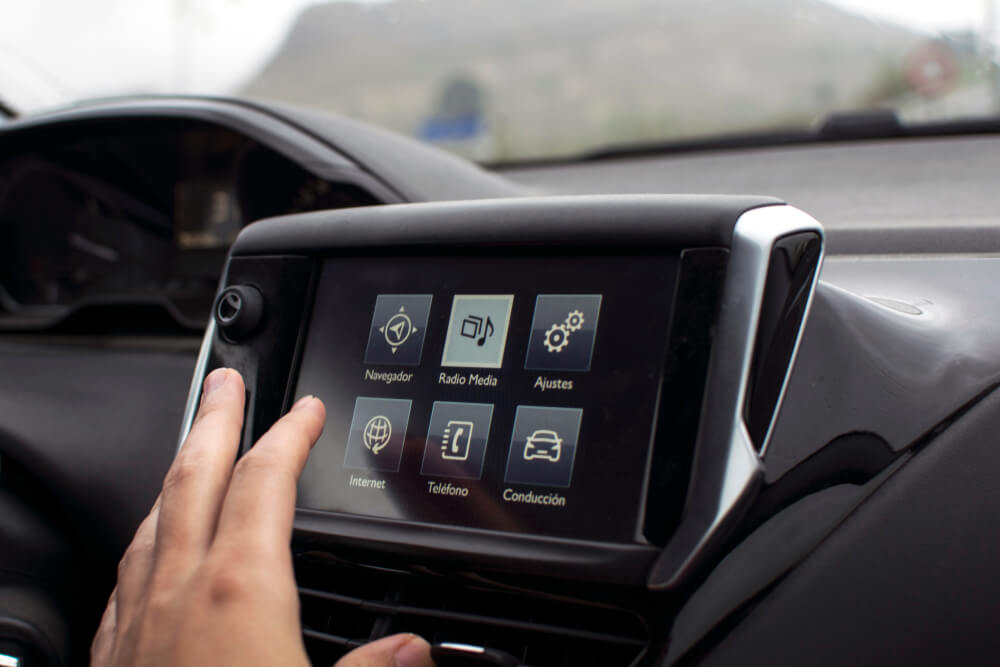
David Moreno Hernandez/Shutterstock.com
Vehicle trackers are designed to safeguard vehicles from theft and optimize fleet management.
Advantages:
- Anti-Theft: These trackers are crucial for theft prevention and recovery. They allow owners and law enforcement to trace a stolen vehicle’s location, increasing the chances of retrieval and potentially lowering insurance costs.
- Fleet Management: Businesses use these trackers to optimize fleet operations, reduce fuel consumption, monitor driver behavior, and enhance route planning. It’s an excellent tool for improving efficiency and saving on operational costs.
Asset GPS Trackers
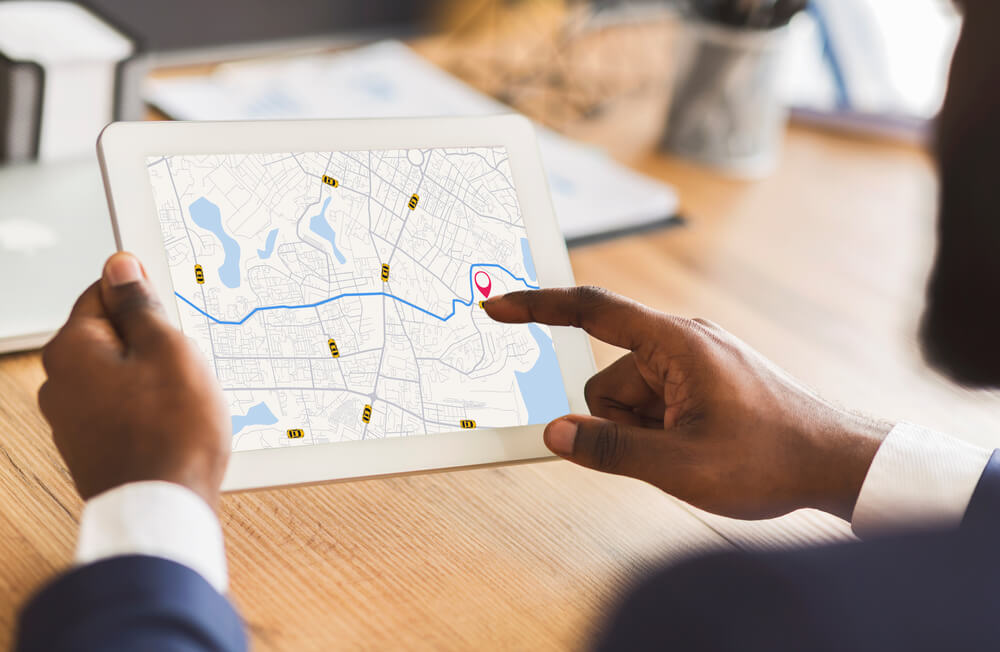
Prostock-studio/Shutterstock.com
These devices are employed to protect valuable items such as construction equipment, trailers, and cargo.
Advantages:
- Valuable Asset Protection: Trackers provide real-time location data and alert owners to unauthorized movement or theft, safeguarding expensive assets and minimizing financial losses.
- Inventory Management: Businesses can use asset trackers to manage inventory more efficiently, reduce losses, and improve supply chain visibility, ultimately leading to better inventory control and cost savings.
Pet Trackers

Eudyptula/Shutterstock.com
Pet trackers are small devices attached to pet collars, aiding in the quick location of lost pets.
Advantages:
- Lost Pet Recovery: They’re especially valuable for cats and dogs that tend to roam, ensuring that your furry companions can be found and returned home safely.
- Activity Monitoring: Some pet trackers, typically higher-end models, also monitor your pet’s activity levels and health, providing insights into their well-being and ensuring they get the exercise they need.
GPS Smartwatches for Kids
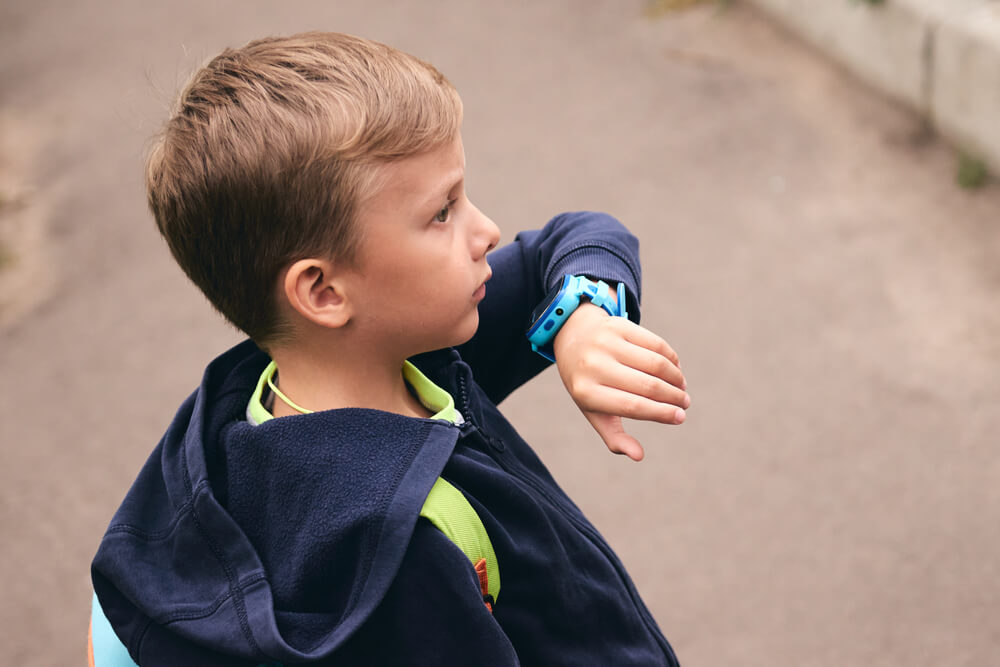
OneWellStudio/Shutterstock.com
GPS smartwatches designed for kids provide real-time location information to parents, ensuring their child’s safety.
Advantages:
- Stay in touch: Some models allow for two-way communication, so parents and children can stay in touch.
- Geofencing: Parents can set up geofencing alerts, receiving notifications when their child enters or leaves specified areas like school or home. It provides peace of mind and helps parents ensure their child’s security.
- Emergency Features: Many GPS smartwatches for kids include SOS buttons that allow children to send distress signals to their parents in case of emergencies. This feature adds an extra layer of protection.
all of the mentioned features are available in the Pingo Track model. Furthermore, if you purchase the watch now, you’ll receive a full license for the Findmykids app as a gift. Don’t miss out!
GPS and Bluetooth trackers play a pivotal role in modern tracking and navigation systems. They operate by connecting to special satellite signals, allowing us to pinpoint locations with remarkable accuracy.
Whether it’s for personal safety, asset protection, or navigation assistance, the ability of these trackers to connect to these special GPS satellites has revolutionized the way we track and monitor our world.
FAQs
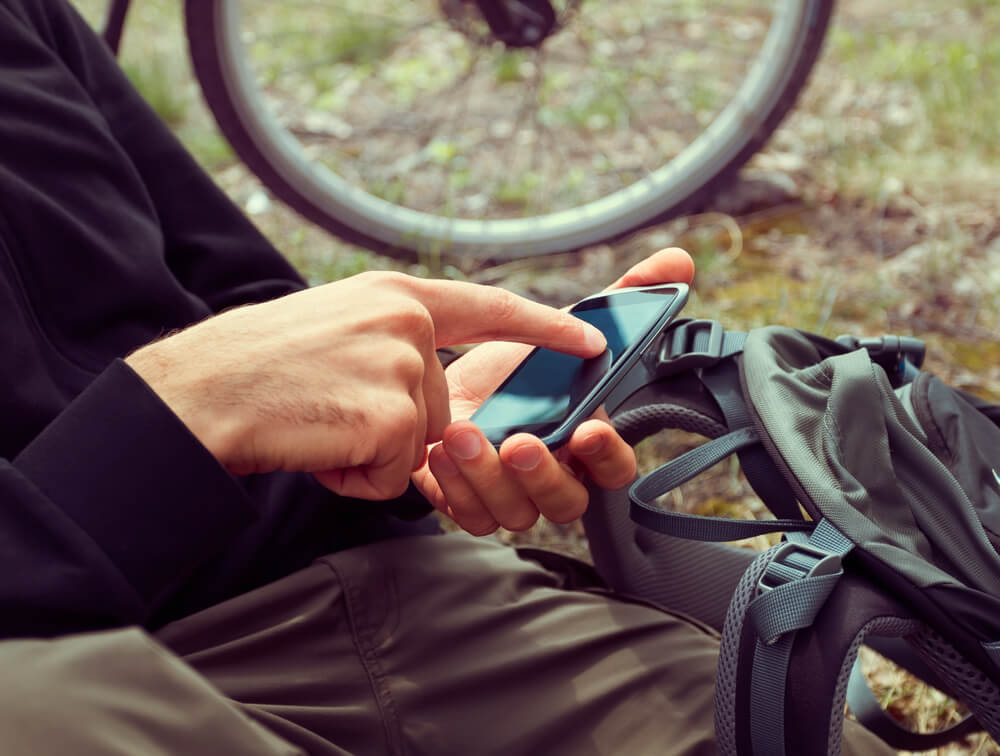
Duet PandG/Shutterstock.com
Can a cell phone detect a GPS tracker?
Most cell phones aren’t designed to detect trackers out of the box. However, there are apps available for download that can notify the user of nearby location trackers using either Wi-Fi or Bluetooth.
Do GPS trackers work without cell service?
If the device has A-GPS technology, it can work without cell service if it has access to satellites or WiFi signals. Standard GPS technology doesn’t utilize cell service at all, so it can work if it has access to the satellites needed.
How far can a GPS tracker work?
The range of the radio signals is dependent on the device. However, most trackers can work anywhere within the range of satellites (or GSM cellular network and Wi-Fi for A-GPS). With access to these signals, there is no limit to the range.
How does GPS tracking work without the Internet?
Without Internet access, these trackers will utilize special satellite signals to track and send locations. Some trackers will store this information for users to view later if the app user is somewhere without Internet access.
The picture on the front page: PRESSLAB/Shutterstock.com
Проверьте электронный ящик

















